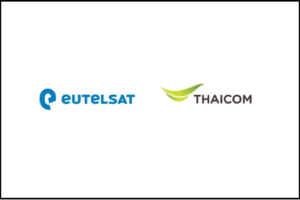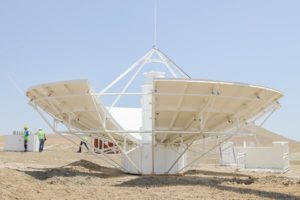KazRENA deploys first IPv6 network and regional centre of excellence in Central Asia
Celebrating World IPv6 Launch Day at the beginning of this month, Kazakhstan becomes the first Central Asian country to join the global deployment of the future Internet addressing system, known as IPv6. The growth of the web will now be able to continue unabated, with the new Internet Protocol allowing more users and devices to communicate on the Internet by providing a vastly bigger pool of IP addresses which were about to run out under the predecessor protocol IPv4.
Always at the forefront of innovation, many national research and education networks (NRENs) across the world have acted as early test-beds for the new technology. In Kazakhstan, KazRENA is the first IPv6 compliant NREN in Central Asia, offering global IPv6 connectivity, as well as more reliable web access and ultimately better network performance to thousands of researchers, academics and students.
As an early adopter, KazRENA is acting as a catalyst for IPv6 deployment in other Central Asian countries, served by CAREN, the region’s high-performance broadband Internet for research and education. CAREN facilitates communication, information exchange and collaboration between universities and research centres within Central Asia and provides access to the European and global research community through interconnection to GÉANT, its European counterpart. Operational since July 2010, CAREN currently interconnects scientists and students in Kyrgyzstan, Tajikistan, Turkmenistan and Kazakhstan, with Uzbekistan also a candidate country. CAREN is funded by the European Commission and managed by research networking organisation DANTE, in conjunction with NRENs of the countries involved.
KazRENA joined CAREN at the beginning of January 2012 with a 155Mbps connection from Almaty to Frankfurt, Germany, thus bringing the idea of upgrading the Silk Road from an ancient trade route to high-speed data highway closer to reality. “We are very proud to be part of the CAREN community,” said Boris Japarov, Head of KazRENA. “As it is fibre-based, CAREN delivers improved connectivity through a more stable, cost-effective network infrastructure. By recreating the links of the old Silk Road between East and West researchers in Kazakhstan and across the whole region are able to benefit from increased collaboration and can bring their skills and expertise to the global research community.”
Existing and future projects that benefit from CAREN span areas such as environmental monitoring, radio astronomy, telemedicine, e-learning, the digitalisation of cultural heritage, palaeontology and solar cell technology deployment in line with sustainable development policies in Central Asia.
To raise awareness and prepare the local Internet community for the transition to IPv6, in July last year KazRENA held a training workshop at its premises in Almaty which saw the opening of a CISCO-sponsored IPv6 lab; it is set to become a centre of excellence and a catalyst of IPv6 expertise throughout the region offering attendees from universities and other institutions an ideal platform to discuss best practises in the adoption of the new technology.
Far from being solely an academic training site, the lab assists also engineers from telecoms operators, such as Kazakhtelecom, in getting hands-on experience with IPv6 implementation, configuration and usage, which is testament to KazRENA’s commitment to contributing to Internet development in Kazakhstan and throughout Central Asia. “The IPv6 training conducted by KazRENA’s instructor Talgat Nurlybayev provided the required theoretical background and practical skills for future IPv6 deployment at Kazakhtelecom,” said Mariana Alymbaeyva from Kazakhtelecom’s regional direction office in Aktobe. “We highly value KazRENA’s expertise.”
David West, DANTE’s Project Manager for CAREN commented: “It is great to see how the CAREN project is helping develop research and education within Central Asia and with Europe. KazRENA’s playing an important part in the regional project, as its IPv6 leadership illustrates.”
May 8, 2025











